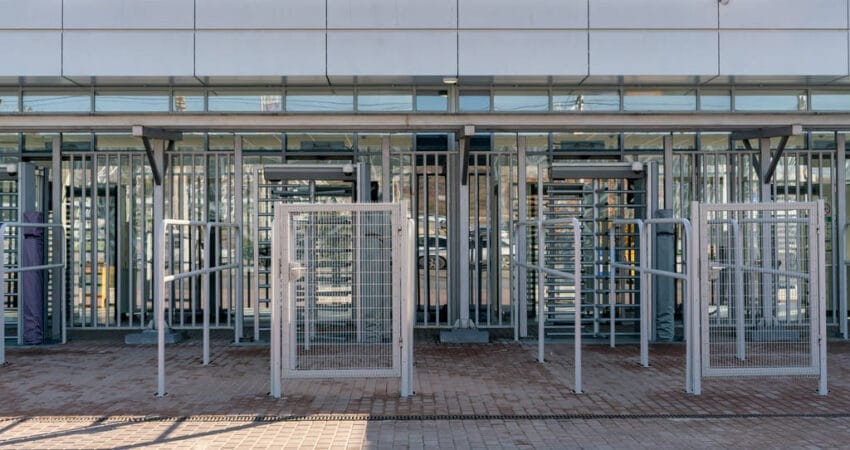In the rapidly evolving landscape of commercial real estate, the integration of advanced electrotechnologies is not just a trend, but a necessity to ensure future relevance and efficiency. This blog explores how electrotechnology, and specifically electrotechnology courses, are critical in adapting commercial buildings to meet future technological demands and sustainability goals.
The Vital Role of Electrotechnology in Commercial Buildings
Electrotechnology, which encompasses the study and application of electrical systems, electronics, and electromagnetism in technology, is revolutionising how commercial buildings operate. By leveraging these technologies, businesses can significantly enhance building management systems, improve energy efficiency, and reduce operational costs.
Electrotechnology Courses: Training the Next Generation of Experts
To keep up with these advancements, electrotechnology courses are designed to equip new professionals with the necessary skills. These courses cover a wide range of topics from basic electrical principles to advanced system integration, and even specialised areas like electrical instrumentation. An electrical instrumentation course, for instance, focuses on the installation, testing, and maintenance of devices that measure and control physical quantities such as pressure, flow, and temperature, which are crucial for modern building technologies.
Future-Proofing with Smart Building Solutions
One of the most significant contributions of electrotechnology in commercial buildings is the development and implementation of smart building solutions. These technologies not only automate processes but also predict maintenance needs and optimise energy use to reduce costs and carbon footprints. Future-proofing buildings involves the installation of smart sensors and IoT (Internet of Things) solutions that communicate data in real-time, enabling proactive management of building resources.
1. Smart Lighting Systems
Utilises IoT sensors and advanced algorithms to adjust lighting based on occupancy and natural light levels. This not only reduces energy consumption but also enhances the comfort of building occupants.
2. Intelligent HVAC Systems
These systems learn from environmental data and user preferences to optimise temperature and air quality, reducing energy use while maintaining comfort.
3. Automated Energy Management Systems (EMS)
Integrates software and technology to monitor, control, and optimise the performance of energy production and consumption units. EMS significantly lowers energy costs and increases system reliability.
4. Predictive Maintenance Tools
Uses data analytics and machine learning to predict equipment failures before they occur, ensuring maintenance can be scheduled without disrupting building operations.
5. Advanced Security Systems
Incorporates facial recognition, motion detectors, and access control systems that enhance the security of the building. These systems are connected to mobile applications for real-time alerts and responses.
6. Water Efficiency Systems
Smart sensors and controllers used to manage water usage more efficiently, important for areas facing water scarcity and aiming for sustainable building certifications.
7. Integrated Building Management Systems (BMS)
Centralises control of the building’s systems, including lighting, HVAC, and security, allowing for streamlined operations and easier troubleshooting.

Energy Efficiency and Sustainability
Energy efficiency is another critical area where electrotechnology shines. By using advanced electrotechnological systems, commercial buildings can achieve greater sustainability. This includes everything from LED lighting systems controlled by smart technology to sophisticated HVAC systems that adapt to the specific needs of the building without excessive energy waste. Electrotechnology courses train professionals to design, install, and maintain these systems, ensuring that buildings not only save on operational costs but also contribute to broader environmental goals.
The Role of Electrotechnology in Safety and Security
Enhancing the safety and security of commercial buildings is yet another area where electrotechnology is indispensable. Advanced surveillance systems, fire detection and control systems, and access control systems are all part of the electrotechnological advancements that make buildings safer for occupants. These systems are complex and require skilled professionals, trained through comprehensive electrotechnology courses, to manage them effectively.
1. Enhanced Surveillance Cameras
These high-resolution cameras equipped with AI-driven software can perform facial recognition, track movements, and analyse patterns to prevent unauthorised access and identify potential security threats.
2. Fire Detection and Suppression Systems
Sophisticated sensors detect smoke or unusual heat increases, triggering alarms and activating suppression systems like sprinklers. These systems can also be integrated with building management systems to facilitate immediate and coordinated emergency responses.
3. Access Control Systems
Utilise keycards, biometrics, or mobile app credentials to manage entry to restricted areas. These systems ensure that only authorised personnel can access sensitive locations within the building, adding an extra layer of security.
4. Emergency Notification Systems
Send instant alerts to building occupants and emergency services during a crisis, such as natural disasters, security breaches, or fires. These systems can be programmed to provide specific instructions based on the type of emergency.
5. Backup Power Systems
Ensure continuous operation of critical safety systems like lighting, elevators, and security devices during power outages. These systems can automatically switch to backup generators to maintain essential functions.
6. Cybersecurity for Building Operations
Protects building management systems from cyber threats, securing data related to operations and preventing potential hacks that could disable safety features.

Challenges and Opportunities
Despite the clear benefits, integrating advanced electrotechnology into commercial buildings comes with its set of challenges. These include the initial cost of installation, the need for ongoing maintenance, and the training required for current personnel to manage these new systems. However, the opportunities for cost savings, improved efficiency, and enhanced property value make it a worthwhile investment.
Conclusion
As we look towards the future, the role of electrotechnology in commercial buildings will only grow in importance. Through electrotechnology courses and specialised training like electrical instrumentation courses, professionals are being equipped with the tools they need to transform commercial spaces into efficient, sustainable, and highly functional environments. For building owners and managers, now is the time to invest in these technologies and the training of their teams to not just keep up with the present but to stay ahead in the future.
By investing in electrotechnology today, commercial buildings can ensure they remain competitive, sustainable, and adaptable to whatever new technologies the future may bring.
